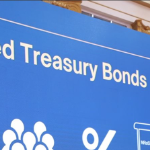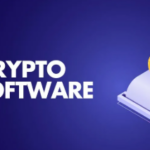In this article, I will discuss the How to Pick a Reputable Crypto Exchange, paying closer attention to the factors that the users should consider before venturing to trade.
- What is Crypto Exchange?
- How to Pick a Reputable Crypto Exchange Step-by-Step
- Example: Finding a Good Bitcoin Trading Exchange in India
- Check Regulatory Compliance
- Evaluate Security Features
- Review Reputation and User Feedback
- Compare Fees and Transparency
- Assess Coin Selection and Liquidity
- Test the User Experience
- Explore Customer Support Options
- Start Small and Monitor Performance
- Other Place Where to Pick a Reputable Crypto Exchange
- Key Factors for Choosing a Reputable Crypto Exchange
- Tips for Using a Safe & Reputable Crypto Exchange
- Risks & Considerations
- Pros & Cons
- Conclusion
- FAQ
Due to the rampant risk and scams in the crypto space, having the right platform becomes paramount to security and success. I will delineate crucial aspects that will assist you in making a secure and well-informed decision.
What is Crypto Exchange?
A crypto exchange is a specialist website where users can purchase and trade cryptocurrency such as Bitcoin and Ethereum. Exchanges serve as a market intermediary and offer a price list, currency trading pairs, a storage wallet, and sometimes offer sophisticated features for the wallets of professional traders. Users can deposit funds via fiat or crypto and withdraw post transaction.

Trustworthy exchanges offer robust security features, high trading volume and low trading fees, and regulatory compliance which are critical for anyone who wants to enter or scale in the crypto market.
How to Pick a Reputable Crypto Exchange Step-by-Step
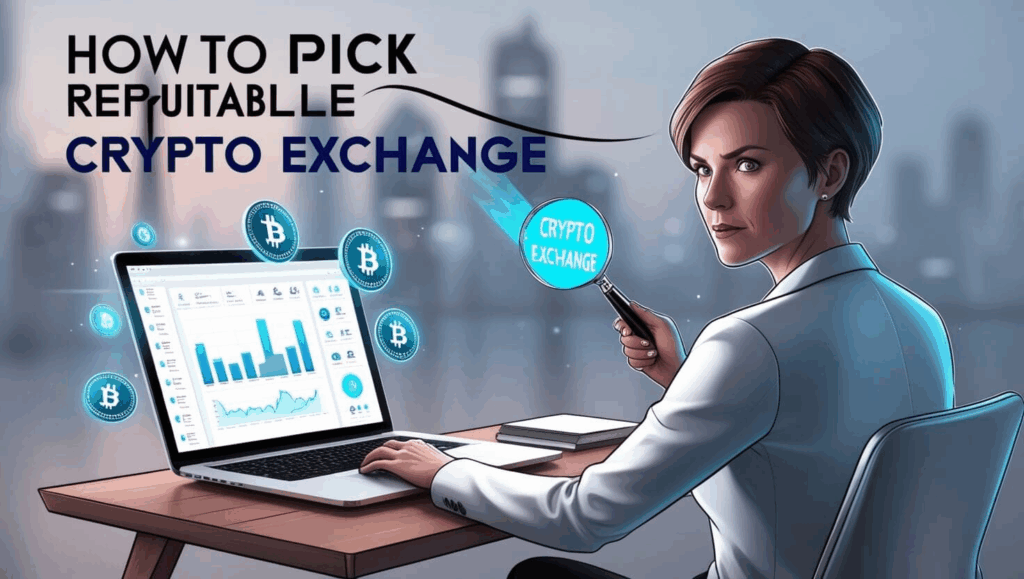
Example: Finding a Good Bitcoin Trading Exchange in India
Check Regulatory Compliance
- Search for exchanges that are registered in India with some reputable exchanges like CoinDCX or coinswitch, or even international ones such as Binance.

- Make sure that they comply with KYC and AML regulations.
Evaluate Security Features
- Look for exchanges that offer 2FA, cold wallet storage, and have some insurance for digital assets.
- Check their track record for hacks or breaches.
Review Reputation and User Feedback
- Look for reviews on crypto forums or Reddit and Trustpilot.
- Look out for common complaints regarding withdrawal issues or customer support.
Compare Fees and Transparency
- Examine withdrawal and trading fees as well as other potential hidden charges.
- Trustworthy exchanges have published clear fee schedules.
Assess Coin Selection and Liquidity
- Select exchanges that have a high trading volume for major coins like BTC, ETH and USDT.
- If you are planning to trade on some altcoins as well, select those exchanges that offer a widerange of altcoins.
Test the User Experience
- Use the mobile app and the desktop interface.
- Examine customer feedback, ease of navigation, speed of order execution, and whether delayed data feeds are absent.
Explore Customer Support Options
- Confirm that they provide round-the-clock service through chat, email, and calls.
- Measure the answer speed with a basic question.
Start Small and Monitor Performance
- Make a small deposit of 1,000. Attempt trading, do a withdrawal test, and assess customer service.
- Monitor fund settling times and responsiveness of the platform.
Other Place Where to Pick a Reputable Crypto Exchange
Coinbase
Since Coinbase went public, it has emerged as one of the few listed crypto companies, marking it as one of the few crypto exchanges with strong regulatory backing. Coinbase’s reputation is mainly built on user-centric security policies like insured custodial wallets, regulatory compliance, and data privacy.
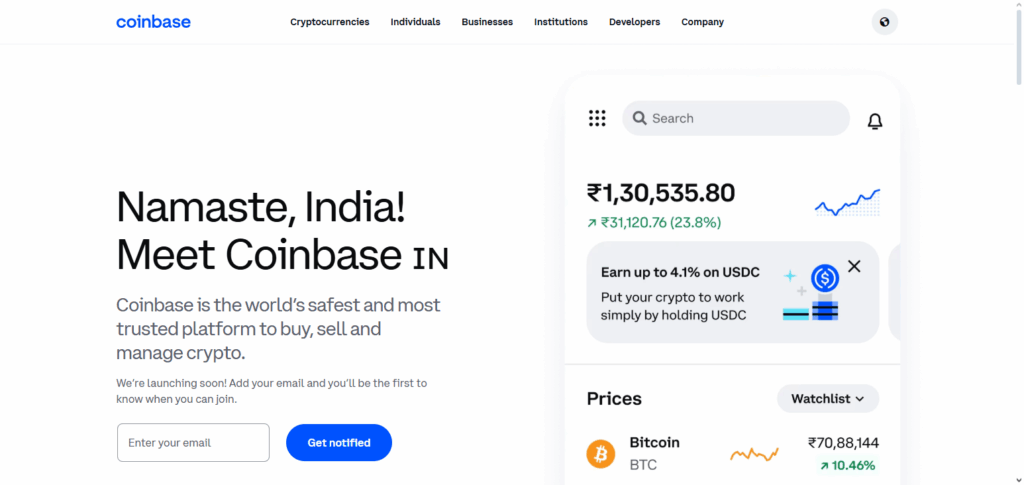
With a transparent corporate structure, audited financials, and global recognition, Coinbase stands out for trust and accountability. Coinbase is user-friendly and well-suited for beginners, as well as seasoned crypto traders, due to its excellent uptime and liquidity.
Kraken
Kraken crypto exchange is known for its reputation, security, and adherence to regulations. What sets it apart is its remarkable track record—founded in 2011, it has never suffered a major security breach.
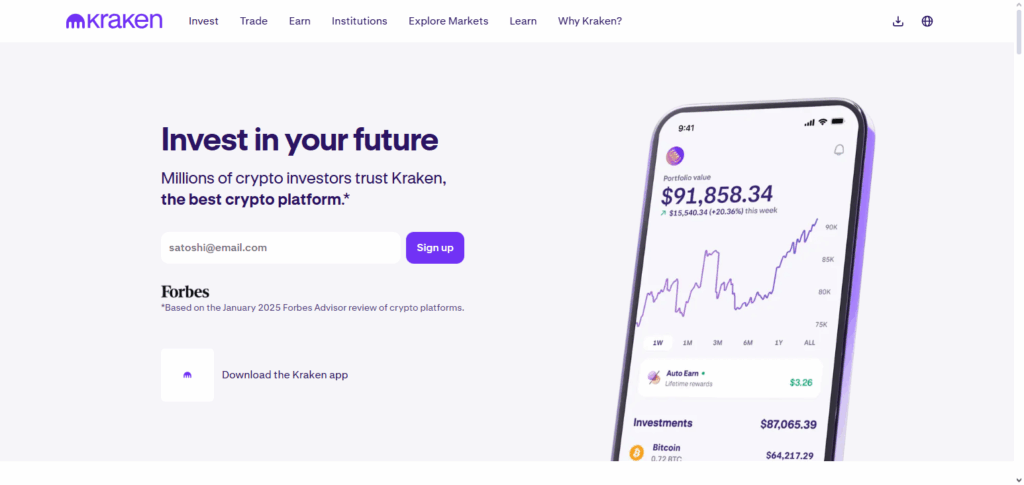
Kraken also boasts transparent user fund audits and supports multiple fiat currencies. This, combined with advanced trading features, responsive support, and a security-focused approach, makes Kraken a trusted platform for both beginners and professional traders.
Uphold
Uphold is one of the most trusted crypto exchanges due to its transparency and multitude of offered assets. Its most distinguishing feature is the real-time asset transparency, where users can check how funds are held and allocated within the exchange.
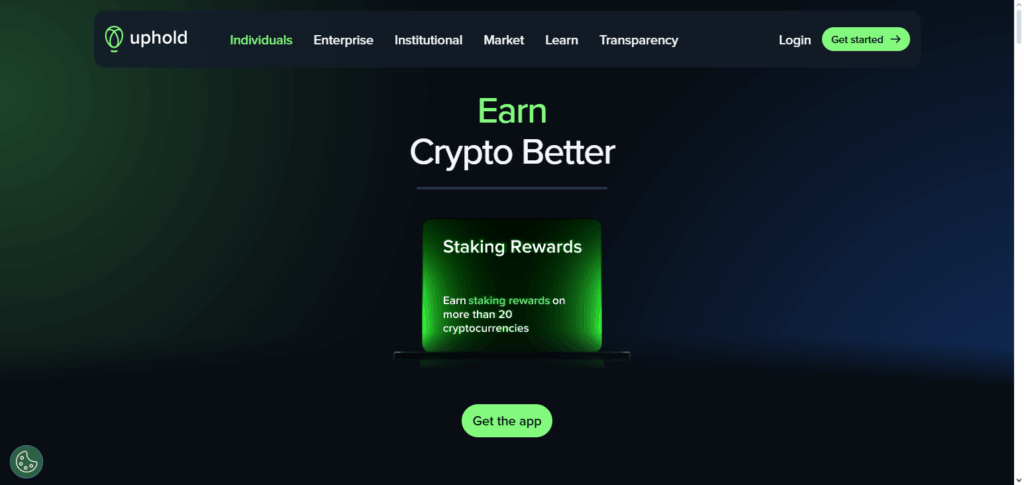
Users can trade cryptocurrencies and fiat currencies as well as precious metals within a single account. Uphold is known to observe regulations, has a strong reputation, crypto provides for its users, and upholds strict security measures. The exchange is perfect for users who want flexibility and transparency dealing with crypto.
Key Factors for Choosing a Reputable Crypto Exchange
Regulatory Compliance: Look for exchanges to operate within the financial boundaries and guidelines of your region and have the necessary licensing to operate.
Security Measures: Check if cold storage, 2FA, encryption, and asset insurance are among the offered provisions.
Reputation and Transparency: Trustworthiness may be established by studying the exchange’s past, their management, available audits, and community reviews.
Liquidity and Volume: A high volume of trades makes trading faster and more competitively priced than if the trading volume is lower.
Supported Assets: Check that the exchange has a large assortment of cryptocurrencies whose projects are verified.
Fee Structure: Look into the fees for trading, depositing, and withdrawing, as a sign of reputation, a platform has clear fees.
User Experience: Advanced and beginner users benefit from mobile and web apps that are user friendly.
Customer Support: Top exchanges with a good reputation provide prompt and effective live and email chat support, and phone support.
KYC and Privacy Policies: Look into the policies of the platform to determine what user data is collected and if the platform falls within a privacy-centric policy.
Deposit and Withdrawal Options: A trustworthy exchange verifies that the methods of depositing and withdrawing both fiat and crypto are safe, instant, and available.
Tips for Using a Safe & Reputable Crypto Exchange
Check For Regulation and Licensing: Sticking to exchanges with licenses from your country and who observe strict compliance regulations is best.
Activate All Security Features: Activate all two-factor (2FA) withdrawal whitelists, and email or SMS notifications.
Set Unique Strong Passwords: Do not share passwords with other accounts. Password management tools can enhance your security greatly.
Use a Personal Wallet for Funds: Long-term assets should be moved to cold storage, keeping only necessary active trading funds on the exchange.
Verify Reputation for the Exchange: Remember to check reviews from independent sources, forums, and social media.
Fees Should Be Clearly Stated: Ensure to check for all trading, deposit, and withdrawal fees for transparency on forfait fees.
Check trading volume and liquidity: Established exchanges tend to have high liquidity, hence low slippage, and trading problems.
Use only verified exchanges and apps: Use exchange-provided links only to prevent phishing using unofficial links.
Start with Small Deposit: Before making larger deposits, try using a small trade or withdrawal.
Watch for Exchange platform alerts: Watch over social accounts or blogs for alerts on maintenance, upgrades, or associated risks.
Risks & Considerations
Risks
Security Breaches: Even venerable exchanges are exposed to hacking attempts, putting funds at risk.
Regulatory Crackdowns: Governments may formulate policies that either restrict or completely disable the exchange.
Asset Delisting: Some exchanges mute tokens without prior notifications which may impact your portfolio.
Withdrawal Limits or Delays: Some exchanges may restrict withdrawals, especially during highly volatile market conditions.
Insolvency Risks: User funds may become unrecoverable in the event an exchange goes bankrupt.
Considerations
Licensing & Legal Status: Ensure the exchange is legally registered and compliant in your jurisdiction.
Security Features: Make sure the exchange protects its assets with cold storage, two-factor authentication, and other security measures.
Reputation & History: Look at the platform, its history of problems, reviews, and transparency.
Fee Structure: Have a clear understanding of all fees, including those that may be concealed during trading and withdrawals.
Ease of Use: The platform should be calibrated to your experience level, whether novice or advance.
Customer Support Quality: Assistance that is timely and responsive is very important during trying times.
Asset Variety & Liquidity: Support for your tokens and market volume is very important.
Pros & Cons
| Pros | Cons |
|---|---|
| Regulated and legally compliant platforms enhance safety | KYC requirements may reduce privacy |
| Strong security measures protect funds from hacks | Some reputable exchanges charge higher fees |
| Transparent operations and public audits build trust | Limited access in certain countries due to regulations |
| High liquidity allows faster trades with fair prices | Not all assets are available on every reputable platform |
| Wide asset support offers more trading and investment options | Risk of centralized control over user funds |
| Reliable customer support helps resolve issues quickly | Delays in withdrawals during peak demand periods |
| User-friendly interfaces suit both beginners and pros | Over-simplified tools may limit advanced trading functionality |
Conclusion
Selecting a recognized crypto exchange is fundamental to safeguarding your cryptocurrency journey. Prioritize well-regulated and fully compliant crypto exchanges. Look into their user interface and experience, payment methods, trading volume, and customer service.
Make sure to read reviews and check social media, and look into hidden fees. If these criteria are met, trading and investing in cryptocurrency has never been safer and you will be able to do so with unmatched peace of mind.
FAQ
What is the most important factor in choosing a crypto exchange?
The most important factor is regulatory compliance. A regulated exchange ensures legal protection, transparency, and accountability.
How can I check if a crypto exchange is legitimate?
Check if it is registered with financial authorities, review its security practices, read user reviews, and verify company details like headquarters and team.
Do I need to complete KYC to use a reputable exchange?
Yes, most reputable exchanges require Know Your Customer (KYC) verification to comply with laws and enhance security.




